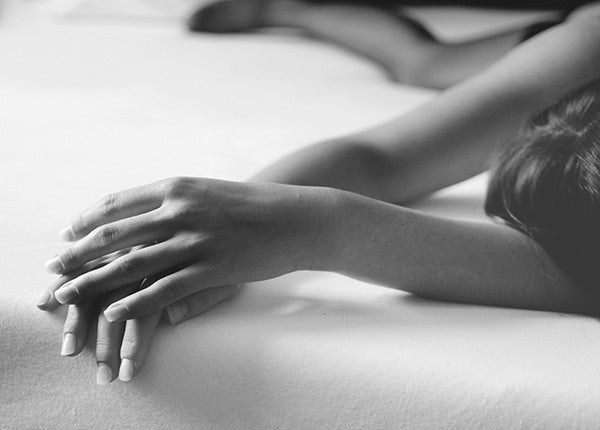4 Simple Steps to Better Sleep

What happens when someone does not sleep enough?
Have you ever felt irritability and mood swings after just one night of bad sleep? Now imagine having a week, a month, or even years of inconsistent sleep. It would be a terrible thing, life would become a chaos!
As Diane Augelli, M.D. and sleep expert at New York Presbyterian Hospital, has said, “the effects of poor sleep on cognition, memory, learning and processing can be seen with just one night of tossing and turning.”
Chronic poor and restricted sleep are known to be associated with low immune system and the development of illness, notably cardiovascular disease, diabetes, hypertension and certain types of cancers. It compromises growth and cell repair throughout the body.
Thus, I consider sleep as my number one priority for optimal health and longevity. According to Matthew Walker, professor of neuroscience and psychology at the University of California: “Sleep is the most effective thing you can do to reset your brain and body for health.” He even calls it “overnight therapy.”
Why “sleep hygiene” is so important
Deep sleep has many benefits, it is the refreshing part of your sleep cycle, helping clear the brain for new learning the next day.
You may experience difficulties to access deep sleep if you are prone to sleep disruptions and stress, but you can create an environment that favors it with a better “sleep hygiene”.
I like to call it also “Evening Ritual”.
Basically, start to create and establish a regular, relaxing evening routine to help you fall asleep more easily. We give "sleep training" for babies. Why not for grown ups?
In his book, “The Power of Habits”, Charles Duhig investigates the science of habit formation in our lives. He advocates our responsibility to rebuild them once we understand the underlying system: “The first part is there’s this cue, a trigger for an automatic behavior. And then there’s a routine, which is the behavior itself, then finally a reward, and the reward is how your brain learns to latch on to this pattern and make it automatic for the future. So, the key to breaking habits, is to recognize the cue and reward linked to your habit, and then replace your habit with another substitute behavior.”
When you design a pattern tailored to fall asleep easily, just the activation of the trigger will be enough to click you into the twilight zone.
The benefit of a positive habit is that you don’t really think of it once it has become one. You can just direct your energy towards harnessing your creative potential and working on your highest priorities.
Design an “Evening Ritual” that works for you
What does your regular evening look like?
Why do you do certain things? What do these things bring to you?
Can you change some habits so they better serve your long term goals?
A successful Evening Ritual for me will look like this:
6pm (or 9pm at latest): “Shutdown Ritual”
I have learned this from Cal Newport, author of Deep Work: Rules for Focused Sucess in a Distracted World, which I strongly recommend.
The time you “shut down”, is the time when you actually leave your work, wether you work from home or from an office.
The steps of this procedure are as follows:
- I check my emails one last time in case there is anything notified as “urgent”.
- I will check the boxes off my task list of the day.
- I will write down my top priorities for the next day.
- Once this is complete, I will shut down my computer and literally say out loud: “Shutdown complete!”
Once I have said this, I will try not to go back to my computer. I tell myself that things will not collapse just because I did not check my emails or do that one last task.
9pm: Herbal Tea-Time
As we have seen above, the success of a habit lies in a reward that satisfies us. The trigger is for me to say “Shutdown complete!” (it feels great to say it and I always laugh to myself) and my reward is the tea time.
I suggest teas that are caffeine free and promote sleep such as Lavender, Chamomile, and Valerian. I am in love with Iyi Gecelar ( “Good Night Tea” in Turkish). Soothing Caramel Bedtime is very popular too. Some people drink hot milk with honey, others have a spoonful of Nutella!
 Photo cred: Mira Kemppainen
Photo cred: Mira Kemppainen
Fill your cabinet with a large variety of teas and rotate them every month so that one tea does not lose its effectiveness on your system.
Ellen Vora, MD holistic psychiatrist practicing with Frank Lipman, MD at the Eleven Eleven Wellness Center in New York City recommends almond butter in the evening:
“Almond butter has a high fat and protein content, so it’s slow to digest and will be absorbed into your bloodstream gradually overnight, giving you a safety net of blood sugar. Steady blood sugar supports deep, consolidated sleep by preventing blood sugar dips, which can wake your body up. Almonds also contain magnesium and tryptophan to promote sleep.”
This news made me very happy and guilt free to treat our family to an evening snack of green apples with almond butter.
NB: I suggest to not drink too much too late, or you will have to wake up multiple times!
If we come back home from dinner and it’s past 11, I will make tea still and take one tiny sip, just to keep the habit in the cue.
9pm-10:30pm: Quality Time & Unplug
Do something that makes you happy to be alive.
It could be watching a TV show, listening to music, a walk in the neighborhood. I like to “appreciate” my day and write in my Five Minutes Journal. It’s a great way to unload any residual worries and focus on the positive aspects of the day. At home, we have some creative activities such as Japanese paper folding, watercolor painting, drawing etc..
I turn off my digital devices around 10pm. As much as the phone or Ipad can be an easy distraction, it is also associated with work and stress. I suggest turning it off as early as possible to connect with your home’s relaxing energies and have a quality time with your loved ones.
10:30pm: “Turn Down Service”
This concept of turn down service in some hotels always makes me smile. I only want turn down service for the piece of chocolate and because there is something to look forward to!
The golden rule is to retreat in the bedroom an hour before my intended sleep time, to gently prepare my subconscious mind for the night.
- I brush my teeth and take a shower to clean myself from the unwanted energies of the day.
- I will program my Sunrise alarm clock to simulate a sunset at 11:30pm.
- I will only read books on specific subjects that are soul soothing but not mind stimulating. I find authors such as Thich Nhat Han, and Yogani great for this purpose because their writing style is candid. I know someone who reads cooking books. My Canim reads Math theories!
- When I feel unsettled, I sometimes put on a guided “meditation for sleep” on Insight Timer. Because I always use the same guided meditation, just the fact of turning it on and hearing the first seconds knocks me out.
 Photo cred: Aga Putra
Photo cred: Aga Putra
Some recommendations:
- Download a free screen-dimming software for your computer such as f.lux.
- If you don’t have a sunrise alarm clock, just use a candle. When you blow on your candle, imagine that you are conjuring all errant thoughts.
- Upgrade your bedroom with an aromatherapy diffuser with a few drops of Lavender essential oils or spray your pillow with a Lavender Bedtime Linen Spray.
- Keep your phone out of the bedroom. I know it’s hard (we are so attached to it, people make up all sorts of excuses and are sensitive about this point), but there’s a lot of evidence that blue light, emitted by smartphones, tablets, laptops, and many other electronic devices, is impacting on the quantity and quality of the sleep we are getting.
- Avoid caffeine intake after 3.
- Avoid having heavy meals, or processed food.
- Avoid going straight to bed after a movie. Have a light activity in between.
We all need quality recovery time -meaning consistent nights of good sleep, to wake up with clarity and perform optimally (day and night). You can start to collect habits and make a routine that is compatible with your lifestyle and your surrounding. Communicate about it with your loved ones to help them understand what you are trying to pursue.
What is the one thing that you can do today, to have a better sleep hygiene?
If you had all the resources you need to design your ideal evening, what would it look like? How would you sleep?
What are the baby steps you make each week to bring you closer to your ultimate goal?
Start by writing down some questions and answers…
PS: If the above does not work, you can read about Cognitive Behavioural Therapy for Insomnia. It will provide long-lasting results and may be a healthier alternative to taking sleeping pills.

